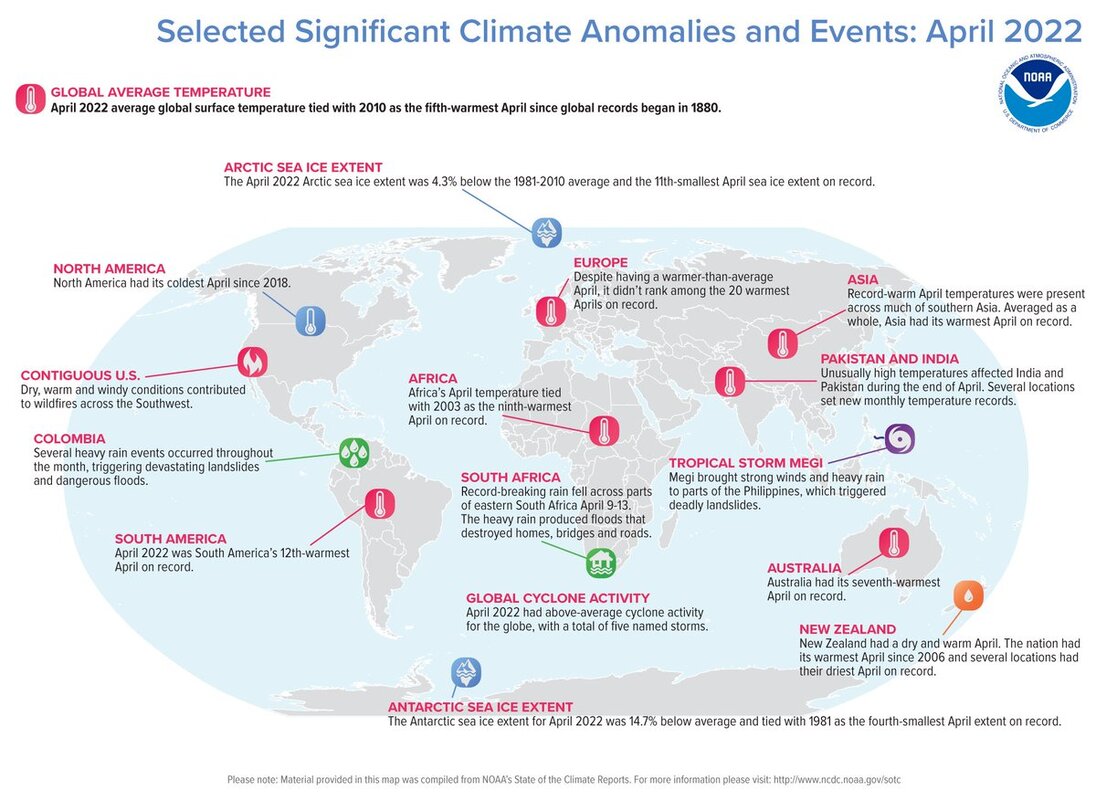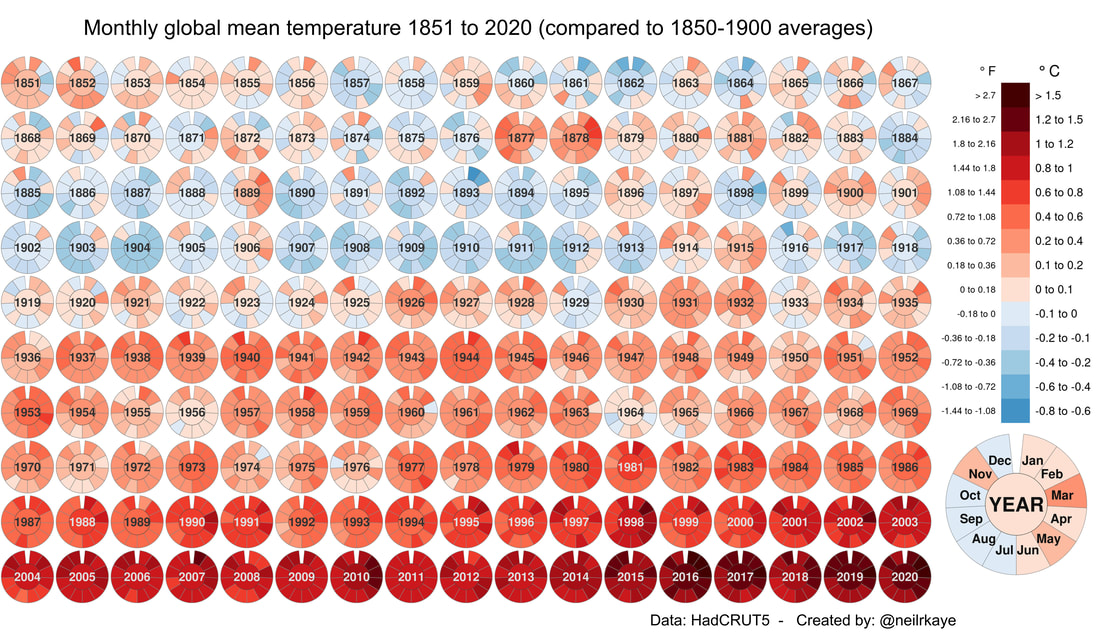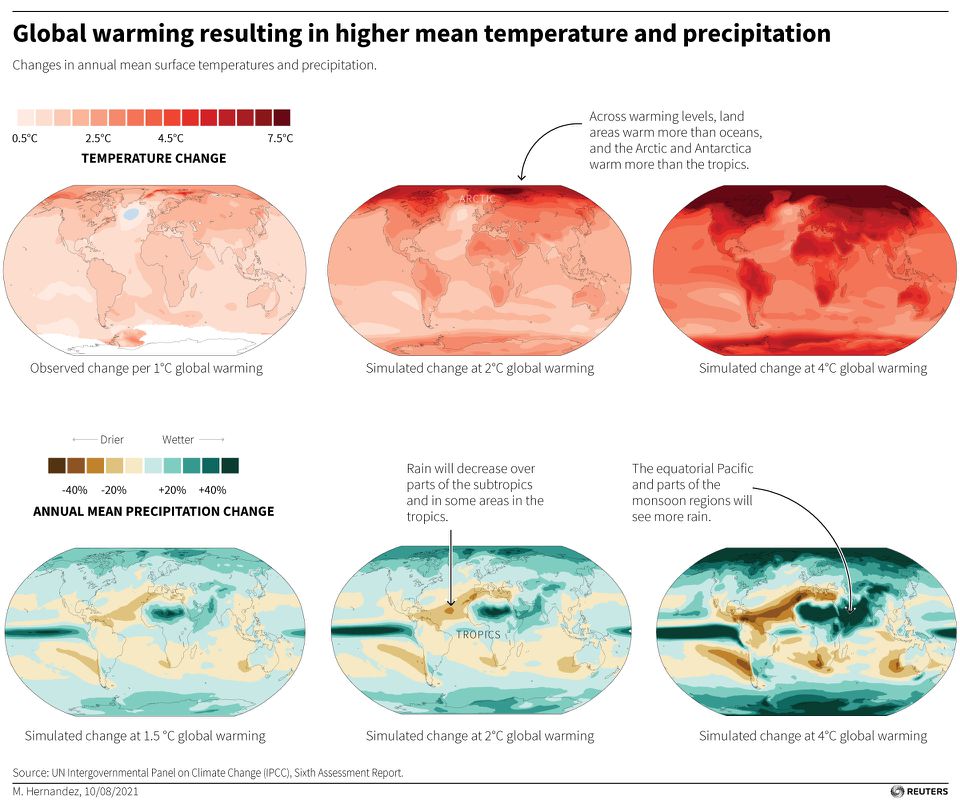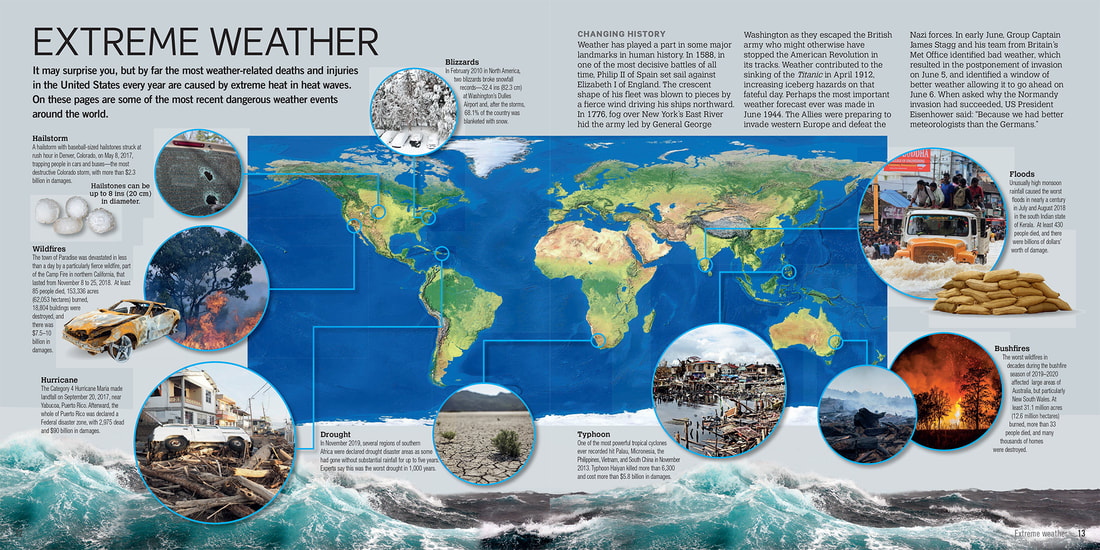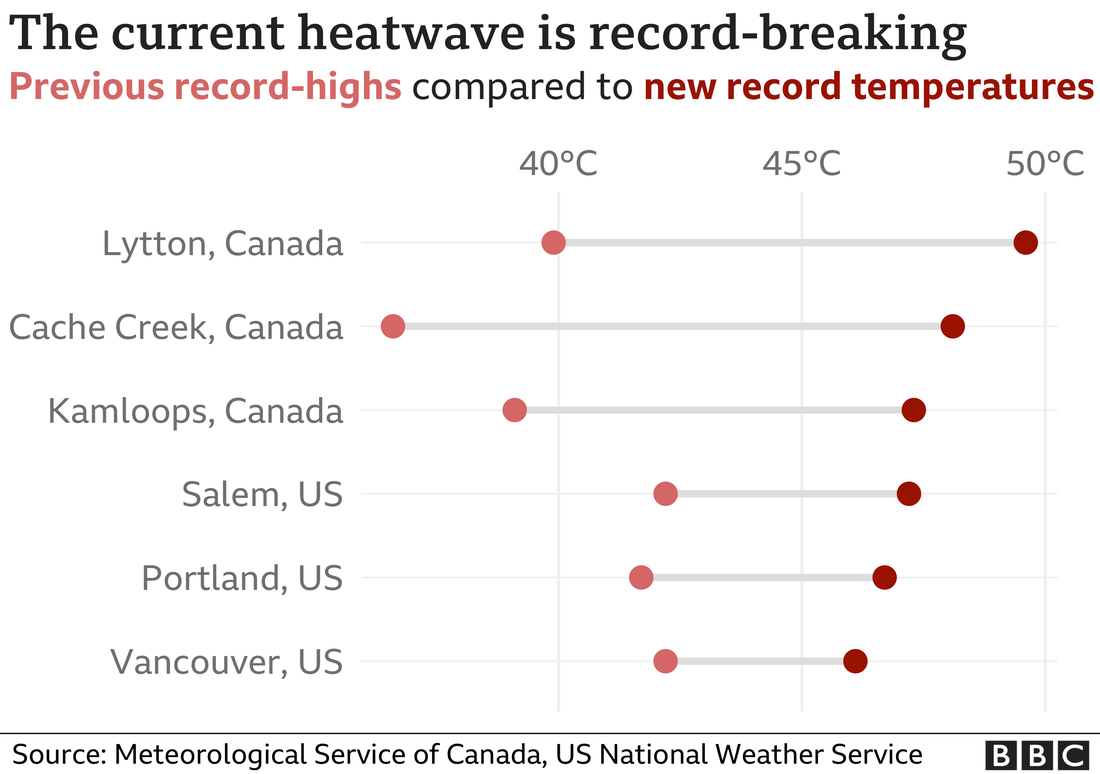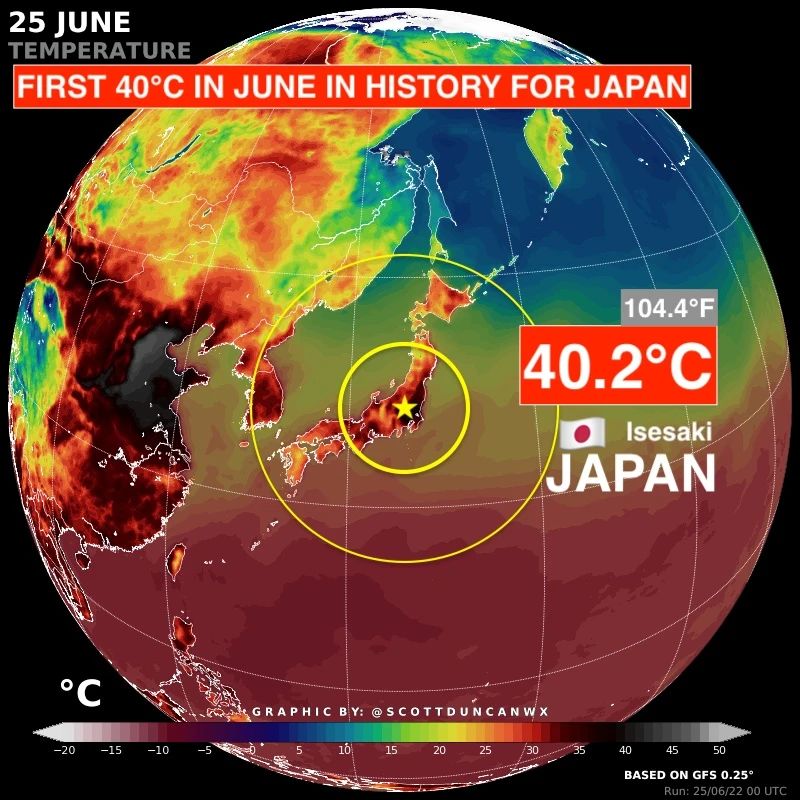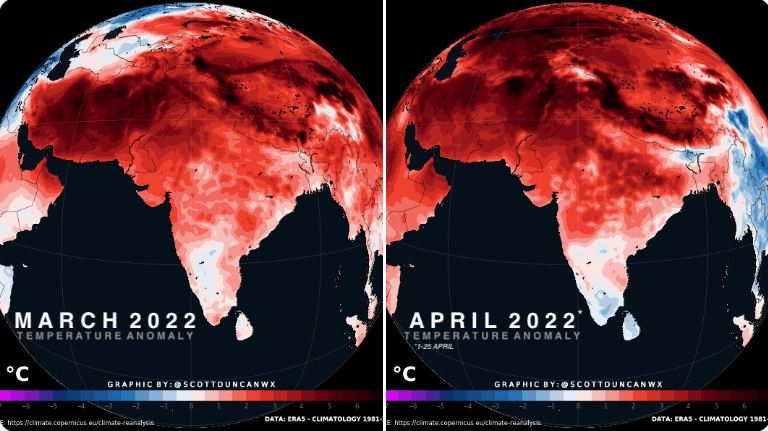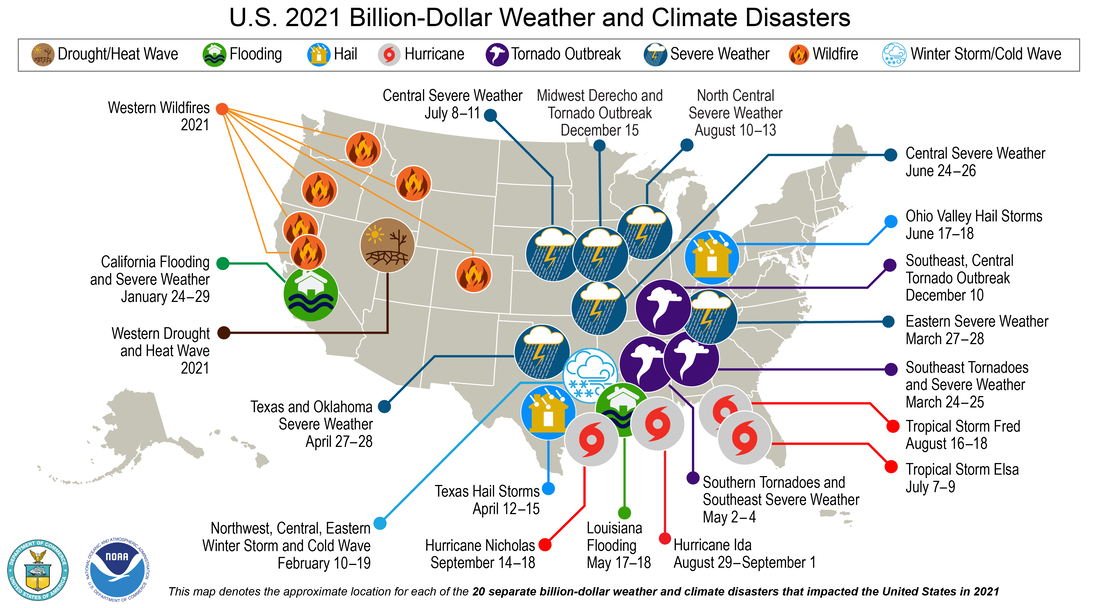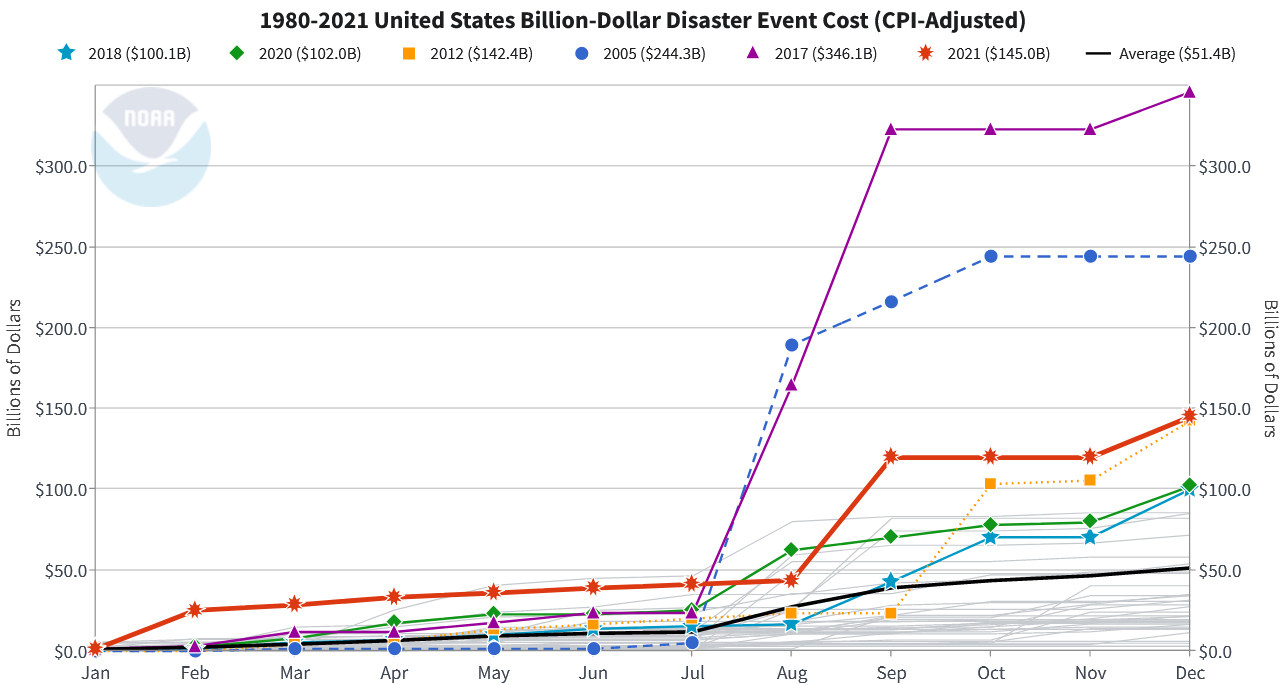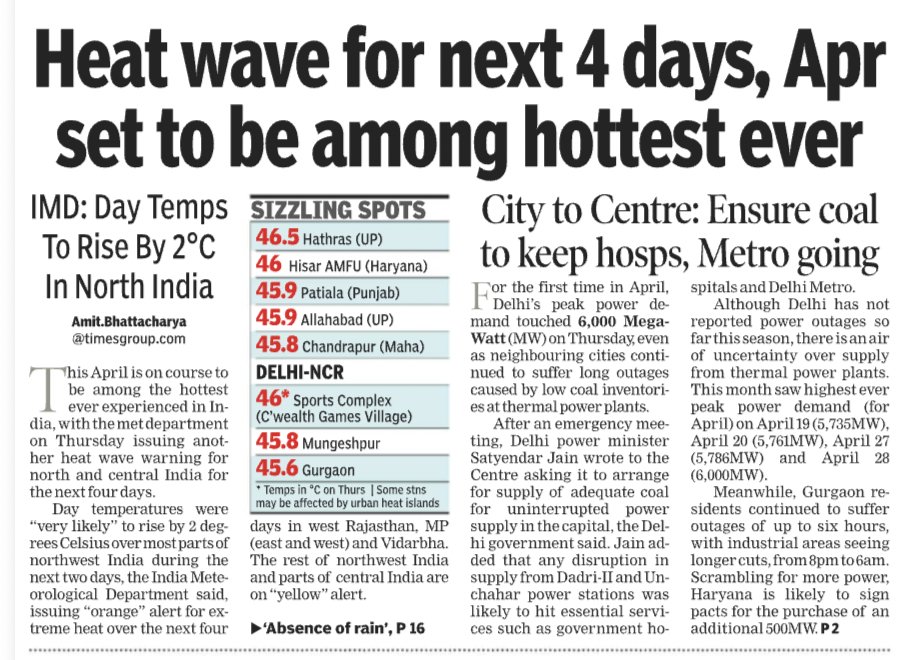27.06.2022
Eight Climate Change Records The World Smashed In 2021
Here are eight climate change records the world broke in 2021, according to the WMO.
1.Warmest years on record. The past seven years, between 2015 to 2021, were the warmest years on record.
2.Record high sea levels. Globally, the sea level rose 4.5mm a year on average between 2013 and 2021.
3.Antarctic ozone hole grows “unusually” big. The ozone hole over the Antarctic in 2021 was “larger and deeper” than 70% of the ozone holes measured since 1979.
4.First ever rain at Greenland’s highest point. Rainfall was recorded for the first time ever at the highest point on Greenland’s ice sheet. This is Summit Station, a research station that is more than 3,200 metres above sea level.
5.Climate change led to record-breaking heat waves. Death Valley in California recorded the world’s highest-ever temperature since at least the 1930s when the temperature reached 54.4C on 9 July 2021. Italy set a new provisional European record on 11 August when a research station near Syracuse in Sicily recorded a temperature of 48.8C. Kairouan in Tunisia reached a record 50.3C. Spain and Turkey also broke new national records, with a temperature of 47.4C recorded at Montoro in southern Spain and 49.1C at Cizre near Turkey’s border with Syria.
6.Hurricane Ida matches record wind speeds. When Hurricane Ida hit Louisiana in the United States on 29 August last year, its 240km-per-hour winds matched the strongest landfall on record for the state.
7.Record flooding in Western Europe. In mid-July 2021, Western Europe saw some of its worst flooding ever recorded. Western Germany and eastern Belgium were worst affected. Hagen in western Germany reported 241mm of rainfall in 22 hours. Rivers flooded, several towns were inundated and there were also landslides.
8.Lowest water level for US reservoir. Drought led to a new water level low for Lake Mead, a reservoir on the Colorado River in Southwestern US. In July, the reservoir fell to 47m below its full capacity, its lowest level on record. Drought also affected other parts of the world, including Iran, Pakistan, Afghanistan, Turkey and Turkmenistan.
Credit: WORLD ECONOMIC FORUM
Poverty deprives people of adequate education, health care and of life's most basic necessities- safe living conditions (including clean air and clean drinking water) and an adequate food supply. The developed (industrialized) countries today account for roughly 20 percent of the world's population but control about 80 percent of the world's wealth.
Poverty and pollution seem to operate in a vicious cycle that, so far, has been hard to break. Even in the developed nations, the gap between the rich and the poor is evident in their respective social and environmental conditions.
Poverty and pollution seem to operate in a vicious cycle that, so far, has been hard to break. Even in the developed nations, the gap between the rich and the poor is evident in their respective social and environmental conditions.
